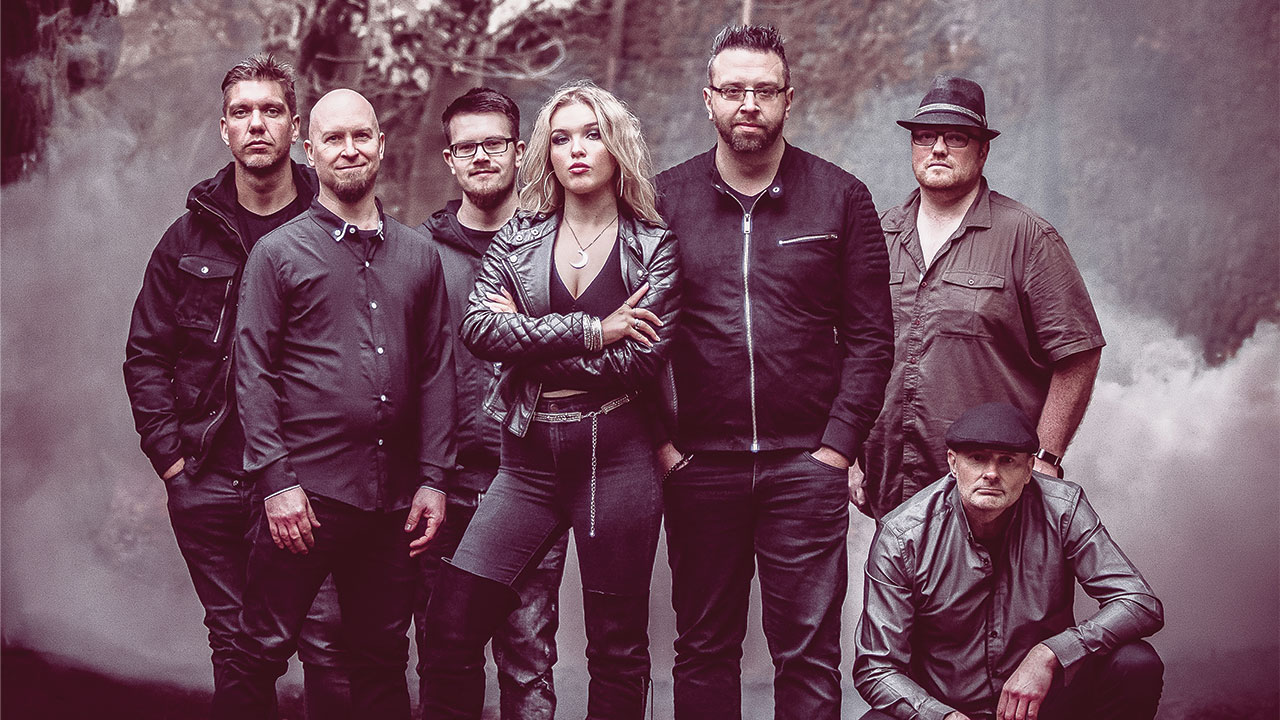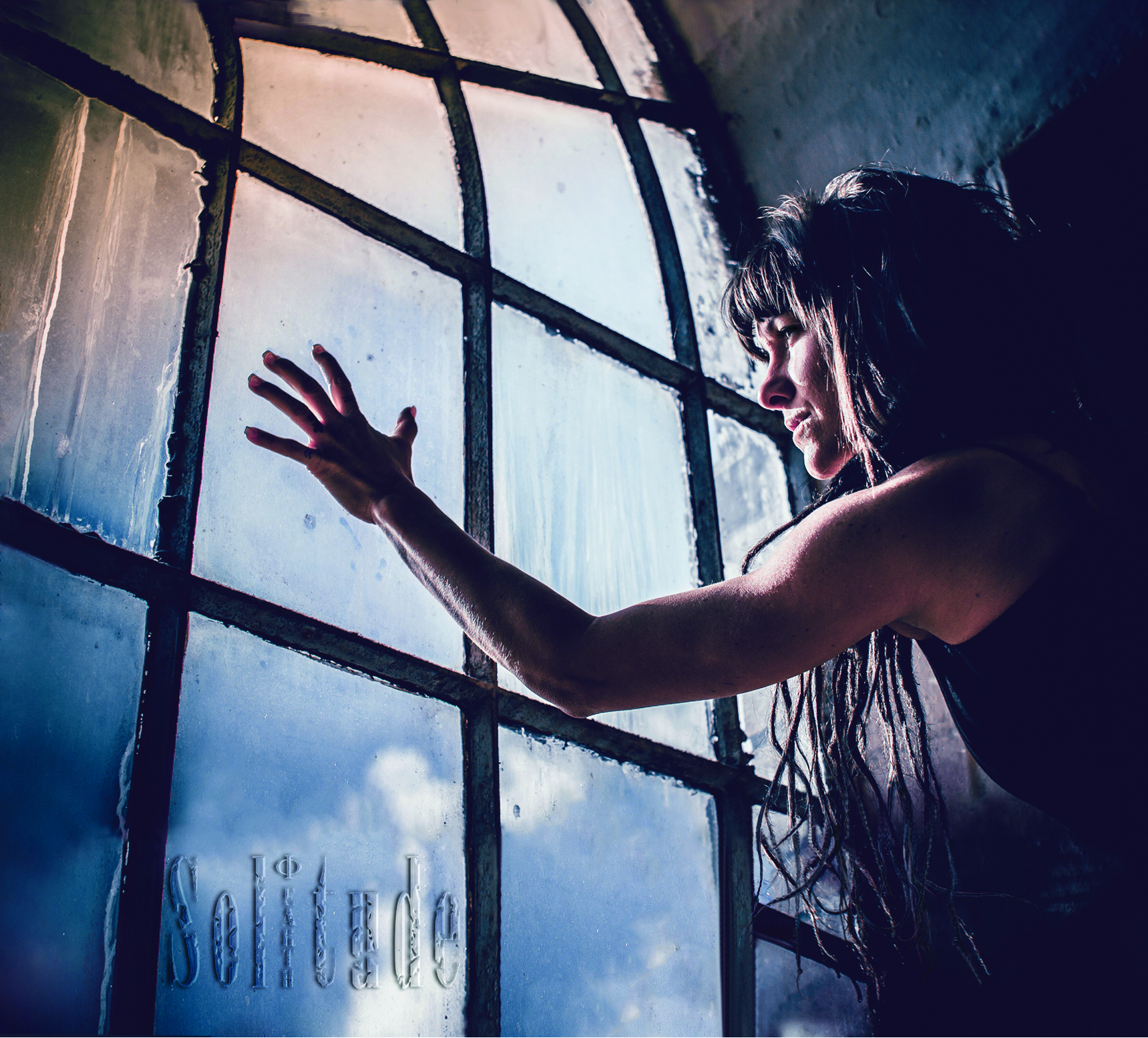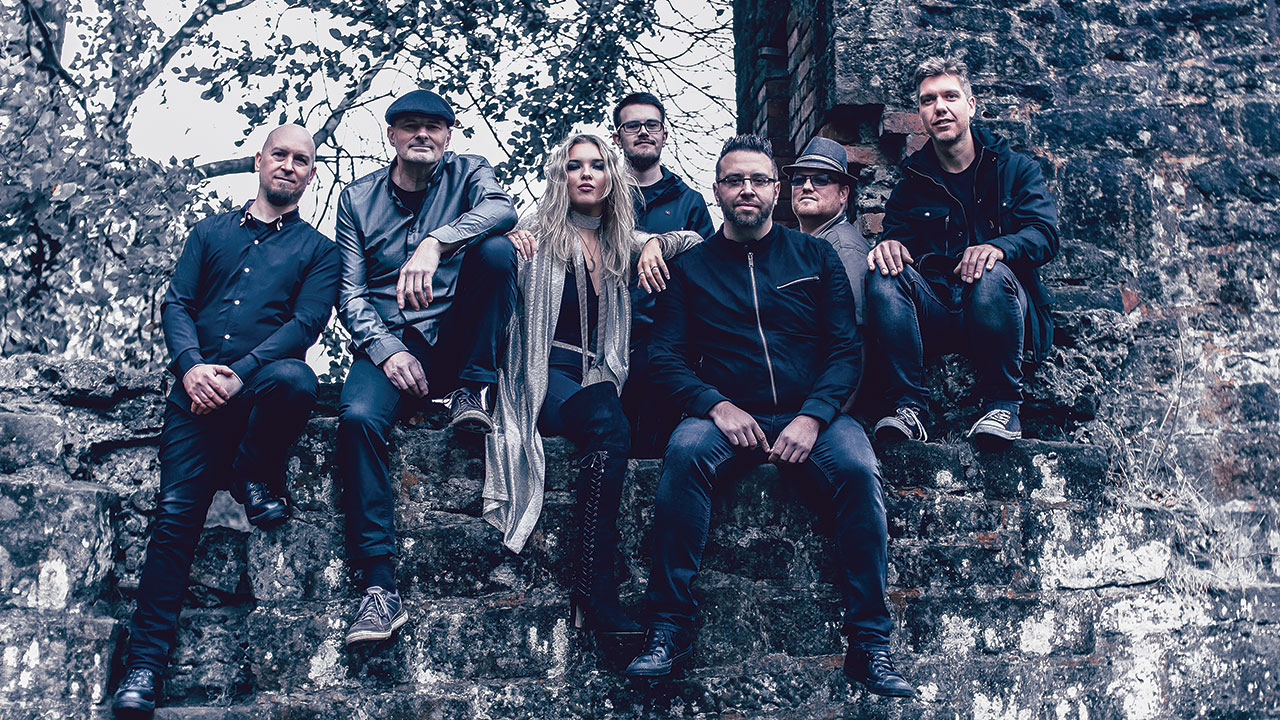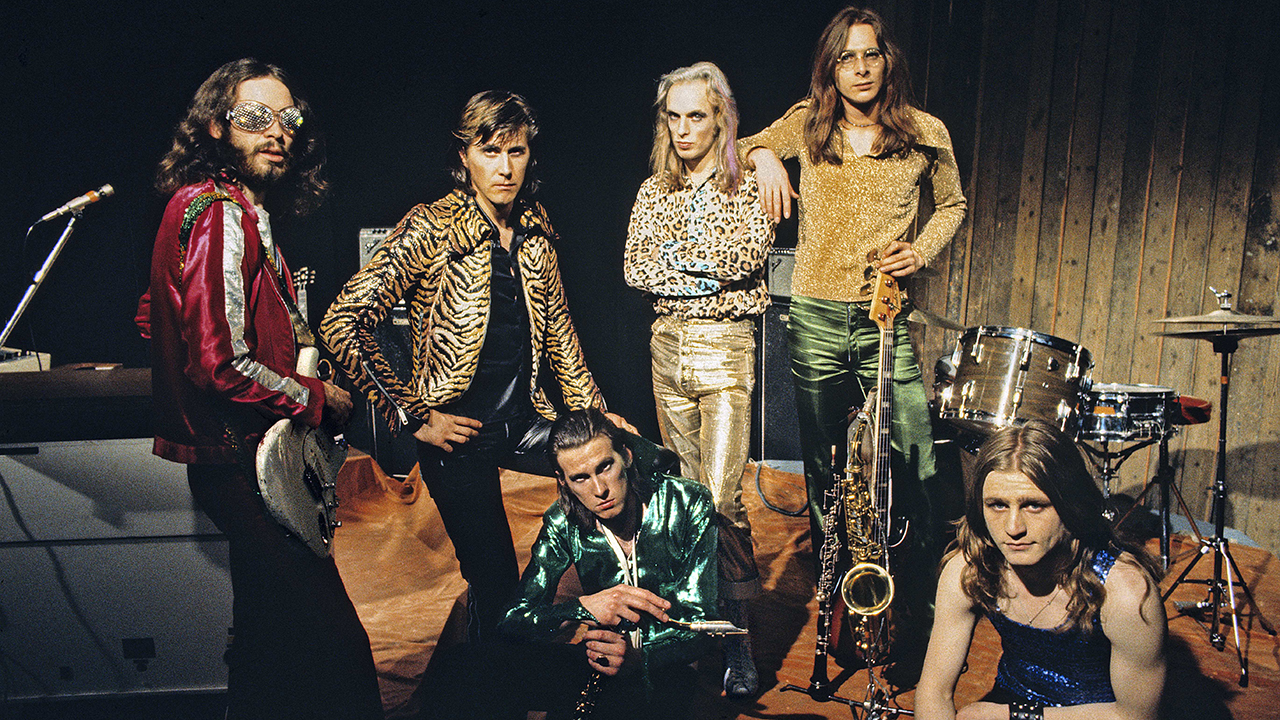“I’m quite happy no one knows who we are!” IO Earth on working out of the spotlight
Birmingham prog rockers IO Earth continue to plough their own unique furrow wthin the music business to ever greater success

Two thirds of people in Britain will suffer a mental health issue in their life and yet often the illness is hidden, the sufferer feels alone and the rest of the population can seem either dismissive, or wilfully ignorant. Birmingham symphonic prog collective IO Earth’s new album Solitude – a musical exploration of mental health and ability – was first born out of an encounter with an Alzheimer’s patient that was hard to ignore.
“We did a video for a song called Insomnia [from 2015 album New World],” explains Dave Cureton, the band’s guitarist and, alongside pianist Adam Gough, its co-founder. “The video is about a daughter being killed, basically, but we needed a house where it could be set. Long story short, this guy lends us this old house to film in, he was an elderly chap, and his wife had some kind of health issue that involved [advanced] Alzheimer’s. When we were filming she was literally just sat in a chair, staring into space. I don’t even think she knew we were there. These nurses came in to care for her and make sure she was alright, get her ready for bed in the evening. And it kind of hit home, really: this woman was just locked in herself. It didn’t matter that there were 10 people walking around her house with cameras and playback music. That really hit us.”
Although Alzheimer’s itself is a degenerative physical disease that causes a decline in mental ability, it often comes hand in hand with mental health conditions and there is an acknowledged, albeit complex, link between dementia and depression. The day spent in the presence of someone so visibly suffering got Gough and Cureton thinking about the stigma of these issues, and they became keen to explore the impacts of the myriad conditions, not to mention the feelings of isolation that so often occur behind closed doors.
“When people say, ‘mental health’ they think there’s something wrong,” says Cureton of the stigma. “But it’s also [mental ability issues] like dementia and Alzheimer’s, as well as [mental health issues such as] schizophrenia and the ‘darker’ side of it. Some people are ashamed of being that way, when really it’s something you can’t do anything about. It’s a shame that people have to go through that.”

Whether it’s cause or effect, poor mental health is particularly common among musicians and those in the public eye, notes Cureton. “When the album was released, I saw something on Facebook that said that musicians are the most depressed people in the world,” he tells Prog. The full study, a joint effort from Help Musicians UK and University Of Westminster entitled Can Music Make You Sick? found around 70% of its respondents reported suffering anxiety and depression.
“I suppose they’re always striving to be the next big thing. We’re lucky, we don’t get any bad stuff written about us, but I can imagine that if you’re Justin Bieber or something and reading every day that somebody wants to kill you… I don’t know…” Cureton tails off. “I’m quite happy in a little prog world where no one knows who I am!”
Aside from its thought-provoking inspiration, Solitude is a remarkable step forward for the band musically. Since winning Prog’s 2010 Readers’ Poll for best new band, IO Earth – now a seven-piece ensemble including sax, bass, keys, guitar, drums, violin and new vocalist Rosanna Lefevre – have continued to evolve at a rapid pace, but on Solitude they sound more like a unit, and that multifarious line-up is now deftly balanced. Songs like the title track start in dusky silence and grow to grand orchestral gut-wrench, all skewered through by Lefevre’s cut-glass vocal. Space is used confidently and generously, eschewing the ‘everything, always’ pitfall of many symphonic rock types.
Sign up below to get the latest from Prog, plus exclusive special offers, direct to your inbox!
“We wanted to get the sound really honed-in,” says Cureton, who says he worked closely with producer Miguel Seco on that aim. “You would assume that the darker stuff would be the heavy, rock-y stuff, but the darker side is more in the clean guitar tone. They create more of an atmosphere with the nice reverb and big delays. A song like Race Against Time, for instance, has this big, heavy section at the start where it drops into the vocal, it’s got this nice little three-note chordal thing changing all the way through and it creates a really good atmosphere underneath the vocal.”
But even without the complication of a seven-piece semi-orchestra, it would have been easy to undermine such sensitive subject matter by jumping in with their size 16s and dropping big riffs all over the top of it. Did the band have conversations about avoiding that?
“Yeah, from a guitarist point of view, I can – blowing wind up me arse – solo all over the entire album, and I’d be happy to do that,” says Cureton. “But I also know when to shut up and I think that’s important in music, so I’m very mindful when I’m playing. I always say to Adam, ‘Is this over the top? Is it too much? Do you need this?’ Because I’ll just play and play and play and think, ‘That’s great, that is!’ But is it really doing anything for the song? It comes back to those bands that put technique in front of emotion and the heart and soul. I love that stuff. I love Steve Vai and Frank Zappa, which has all that technical stuff going on, but it doesn’t make you cry. We’re focusing more on the emotion.”

The record feels like an evolution, but also a maturation, or as Cureton puts it, “more like an album of one band”. This seems to be due to two things. The first is the arrival of Lefevre, a Wolverhampton local, who joined following the departure of Norwegian native Linda Odinsen and seems to have added a new spring to IO Earth’s step. Not least because her proximity has meant the group have been able to more frequently rehearse and perform as a full unit. Secondly, on their fourth album, the writing relationship between Cureton and Gough seems to be achieving a zen-like balance.
“I met Adam in secondary school,” recalls Cureton of their long shared history. “We were in Music and he played this thing and I thought, ‘That’s really nice, that!’ Then we had a PE session and we were getting changed and I went up to him and said, ‘Do you want to make a band with me? You play the piano, I play the guitar – I think it would be quite cool.’ He was like, ‘Yeah, okay then…’ The elaborate joke being that Adam said, ‘But let me put my clothes on first!’
“Then, from like 14/15, we would just meet up at his house and write music. We were never interested in playing covers. We always wanted to write our own music and, from that age onwards, always have done. We’ve never collaborated with anyone else, it’s always just been me and him.
“Our first song we’d ever written – and this is the proggiest title ever, though we didn’t even know what prog was then – was called Romantic Night With Romeo, which was an instrumental. It was beautiful!” laughs Cureton. “I think the second song we wrote was called Why Do People Have To Die? and was a very angst-y title. That was another ballad!”
Fortunately, Solitude has a little more subtlety than this early output and across 25-ish years and some fairly tumultuous changes in the band, their friendship has endured. “I think mainly it’s down to the fact that we’re chalk and cheese,” says Cureton. “Adam’s very laid-back and very calm and I’m the complete opposite! But I think if we had two calm people, nothing would get done – and if we had two nutters, nothing would get done!”
The fact that the relationship works and has not only lasted but actively advanced is worth celebrating and it’s evident in IO Earth’s steady growth, too. “A lot of it comes down to just pure willpower and just wanting to succeed,” says Cureton. “We just keep going, just keeping running and breaking down walls. That’s it really. We’re an independent band and we give as good a product as we can. A lot of people have said that the production of our albums match anything that’s signed or any high-profile band. That’s what we do: we don’t cut corners or scrimp. It’s always the best that we can do financially and musically.”
The fan feedback for Solitude, particularly given the sensitive subject matter, is proving the weight of that statement. “We’ve had quite a lot of fans, who have said that, ‘I’ve suffered from depression,’ or ‘I have a family member who suffers from certain conditions,’” concludes Cureton, “and they really feel it in the music. That’s the kind of feedback you want: that people get it completely.”
This article originally appeared in issue 96 of Prog Magazine.
